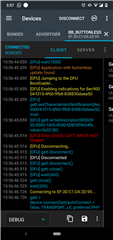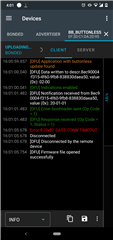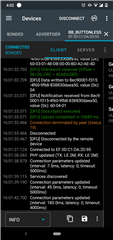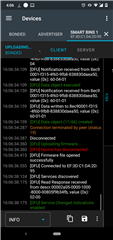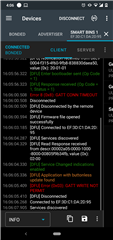Hello all
I am facing a very strange issue, already searched the forum but didnt find anything like it.
Okay so I can get DFU to work. For our custom application we have to disable the soft device for some time for sensor acquisitions and re enable it at a later time for OTA upgrades.
I simply use nrf_sdh_disable_request() to de initialize the soft device successfully, which it does.
I later re - enable soft device using the standard ble calls in example code:
ble_stack_init();
peer_manager_init();
gap_params_init();
gatt_init();
advertising_init();
services_init_2();
conn_params_init();
//Start execution.
application_timers_start();
advertising_start(erase_bonds);
BLE gets initialized successfully, device is advertised and connects to as well. The problem is in DFU. When I attempt DFU, it keeps getting stuck into trying to switch to bootloader, repeatedly giving
"[DFU] disconnected by the remote device"
The logs then try to open the firmware file again, re initiating the process but nothing happen. I have spend quite some time on this and hit a blocker. Any help is appreciated. There must be a step I am missing during re-enabling the soft device



